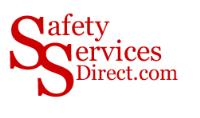 Add My Company
Add My Company
Sign In

Issues around lone workers have been in the media recently, highlighting that employers are not necessarily considering the safety of their workers. Establishing a healthy and safe working environment for lone workers can be different from organising the health and safety of other employees. They should not be put at more risk than other people working for you. Sometimes individuals end-up working alone - so have you really considered the implicaitons of lone workers within your organisation?
So is it legal and safe to work alone?
Working alone is not in itself against the law and it will often be safe to do so. However, the law requires employers to consider carefully, and then deal with, any health and safety risks for people working alone.
Employers are responsible for the health, safety and welfare at work of all their workers and any contractors or self-employed people doing work for them.
These responsibilities cannot be transferred to any other person, including those people who work alone.
Workers have responsibilities to take reasonable care of themselves and other people affected by their work activities and to co-operate with their employers in meeting their legal obligations.
Who are lone workers and what jobs do they do?
Lone workers are those who work by themselves without close or direct supervision, for example:
•A person working alone in a small workshop, petrol station, kiosk or shop
•People who work from home other than in low-risk, office-type work
•People working alone for long periods, eg in factories, warehouses, leisure centres or fairgrounds
•People working on their own outside normal hours, eg cleaners and security, maintenance or repair staff
•As mobile workers working away from their fixed base
•Workers involved in construction, maintenance and repair, plant installation and cleaning work
•Agricultural and forestry workers
•Service workers, including postal staff, social and medical workers, engineers, estate agents, and sales or service representatives visiting domestic and commercial premises
How must employers control the risks?
Employers have a duty to assess risks to lone workers and take steps to avoid or control risks where necessary. This must include:
•involving workers when considering potential risks and measures to control them;
•taking steps to ensure risks are removed where possible, or putting in place control measures, eg carefully selecting work equipment to ensure the worker is able to perform the required tasks in safety;
•instruction, training and supervision;
•reviewing risk assessments periodically or when there has been a significant change in working practice.
This may include:
•being aware that some tasks may be too difficult or dangerous to be carried out by an unaccompanied worker;
•where a lone worker is working at another employer’s workplace, informing that other employer of the risks and the required control measures;
•when a risk assessment shows it is not possible for the work to be conducted safely by a lone worker, addressing that risk by making arrangements to provide help or back-up.
Risk assessment should help employers decide on the right level of supervision. There are some high-risk activities where at least one other person may need to be present and there should never be the option for working alone. Examples include:
•working in a confined space, where a supervisor may need to be present, along with someone dedicated to the rescue role;
•working at or near exposed live electricity conductors;
•working in the health and social care sector dealing with unpredictable client behaviour and situations.
Employers who have five or more employees must record the significant findings of all risk assessments.
Employers also need to be aware of any specific law that prohibits lone working applying in their industry. Examples include supervision in diving operations, vehicles carrying explosives and fumigation work.
For ONLY £15.00 train yourself and your employees around the hazards and risks of working alone
For more information on Working alone - Are your workers ... working alone? talk to Safety Services Direct Ltd
Enquire Now
List your company on FindTheNeedle.

